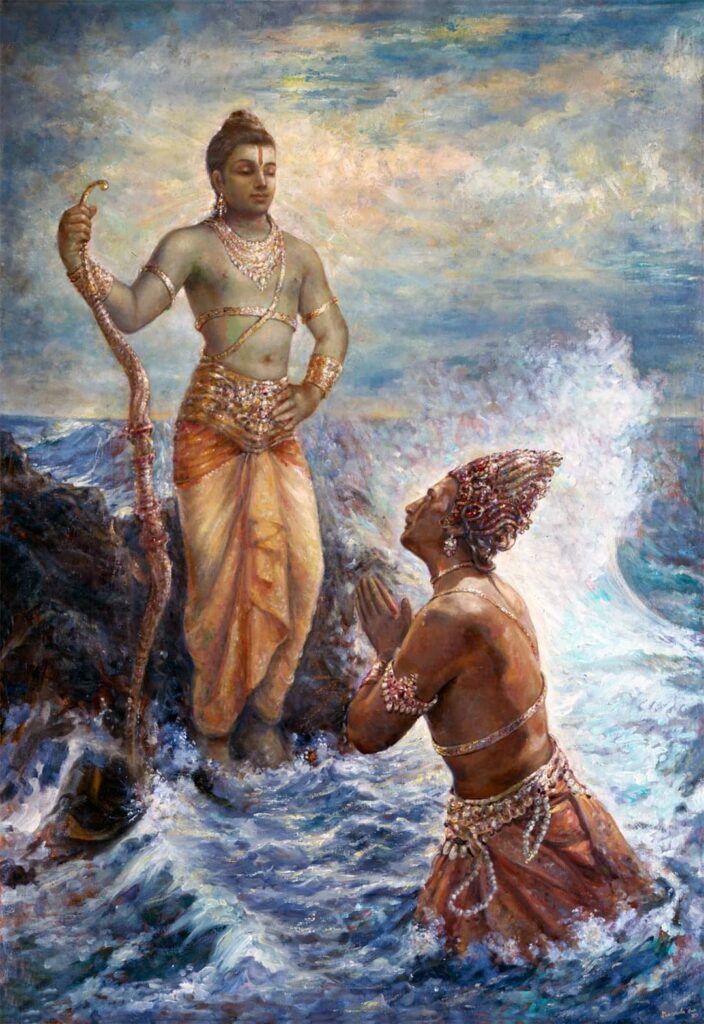One tendency we often have is to equate material talents and spiritual advancement. That’s probably one of the greatest mayas of our movement.
Ordinary people have a tendency to worship materially powerful persons, like rich or famous people, artists, etc. and it usually doesn’t bring anything good, since these people are usually not very good examples. This comes from a mixture of two things: identification and the desire to be like them. Just like we identify with our own bodies, we may identify with other people, and thus feel happy when we see these people enjoying. From this identification, comes a desire to be like them, which leads us to try to be close to and imitate them. That’s why people who are beautiful and materially talented become celebrities on social networks, for example, everyone wants to be like them. Celebrities are respected and even worshiped, becoming authorities and role models.

Understandably, devotees are not free from this propensity. We are also inclined to worship materially powerful people, as well as to create stars out of entertainers. Anyone who has a special talent for singing, acting, cooking, speaking in public, and so on, may become be object of worship. If one can sing very beautifully this means he or she must be a pure devotee, right?? We thus equate such material qualities with spiritual advancement and prematurely elevate people to the position of spiritual authorities and role models.
Some pure devotees were great singers, like Narotama Dasa Thakura, but not all of them. Similarly, many great singers were not pure devotees. Many pure devotees were very rich, like Pundarika Vidyanidhi, but no one in the right consciousness would argue that it is a rule that all rich people are pure devotees. Similarly, Maharaja Patraparuda was a very powerful political leader, but not all politicians are devotees. In this way, when we carefully analyze, we see that material qualities have little correlation with one’s level of spiritual advancement. Some advanced devotees show a great deal of material talent, but most appear to be just humble and unassuming people.
Material talents are just skills one gets due to his past karma. If one uses these talents for Krsna, this can surely help him or her to advance, but it’s a mistake to equate these talents with spiritual advancement. Material talents are just a tool that a person can use. Spiritual advancement can come over time from correctly using the tool, but not from the procession of the tool itself.
The test of spiritual advancement is not in measuring the skills one has, but the determination he shows in using these skills for Krsna. One may chant very beautifully, but how many hours per day he is chanting for Krsna? One may manage well, but how busy he is in using this talent for Krsna? One may speak well, but how tirelessly is he using this talent to spread Krsna Consciousness?
Actually, even the determination one shows in using his talents for Krsna is not a direct measure of his advancement, but it is usually a more reliable parameter. Anyone may have talents, but only a sincere devotee will be able to use his talents for Krsna incessantly, for many years, without stopping. By acting in this way one may gradually become advanced, although the determination itself is not a direct measure of advancement.
Another measurement is to observe how one is able to control his senses. Srila Prabhupada mentions that the symptom of one who is advancing in spiritual life is that he becomes averse to sense gratification. Therefore, a truly advanced devotee will not just incessantly serve Krsna, but he will be very serious in following the principles of spiritual life and avoiding questionable activities.
By observing these two things in parallel, we may be able to better differentiate real spiritual advancement from mere material opulences due to past karma and gradually learn to find truly spiritually advanced people whom we can take as role models, avoiding the maya of taking entertainers and talented public speakers as pure devotees.
